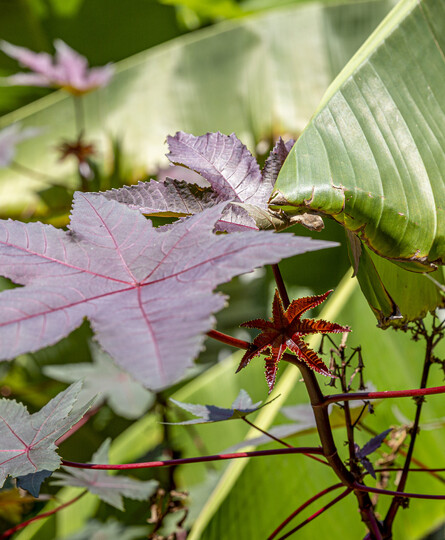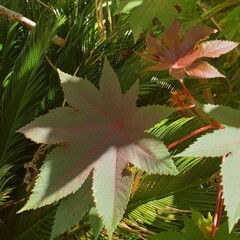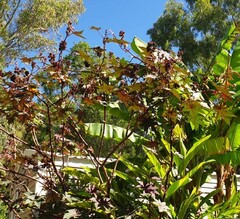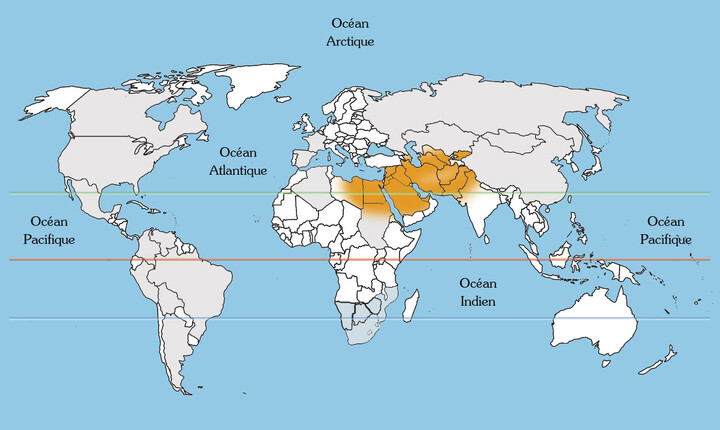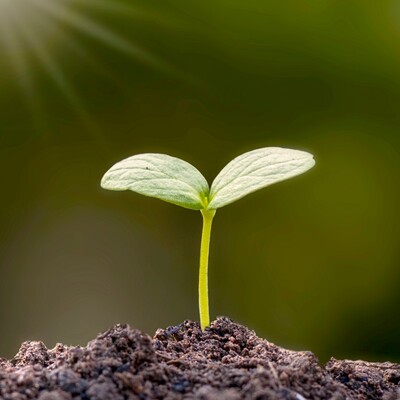Castor oil plant
Presentation
A plant with poisonous secrets
The Ricinus genus comprises just one species of evergreen shrub, growing in mild regions such as Provence.
The castor oil plant grows naturally on fallow land and rocky slopes, but here at our four-star campsite Les Jardins de La Pascalinette®, we cultivate it simply because it is a feast for the eyes!
But beware: the fruits of the castor oil plant are very dangerous as they contain toxins and allergens.
Castor oil is obtained from the plant’s seeds. Over the centuries, castor extracts have been used for both criminal and political ends, due to their deadly potency. Castor beans contain a toxic protein called ricin, which can cause death by poisoning if ingested in sufficient quantities.
…But surprising uses!
However, despite its murky reputation, castor oil is used for medicinal purposes in a variety of cultures. In traditional Chinese medicine, for example, castor oil is used to treat a range of conditions, including digestive problems and joint pain. It is also used in cosmetology, pharmacology and the chemical industry.
Flowering only in the summer, castor oil plant flowers are magnificent monoecious cyathea, arranged in clusters with beautiful purple pistils at their top. You are therefore sure to be able to admire them during your holiday at our nature campsite in the Var, French Riviera-Côte d’Azur!
Identity
| Latin name : | Ricinus communis |
|---|---|
| Family : | Euphorbiaceae |
| Genus : | ricinus |
| Color : | Reddish leaves |
| Origin : | Northeast Africa to Western Asia |
| Foliage : | Semi-deciduous |
| Port : | Shrub |
| Height : | 3 to 5 m |
| Flowering : | Summer |
| Location : | At the bottom of Allée de l'Estagnol and Allée du Filon in the "Jardin exotique" (nr. 21 on the botanical footpath plan) |
Did you know?
The ricin contained in the plant is a poison. Castor oil, however, is widely used for its beneficial effects on hair, nails, eyelashes, etc.

